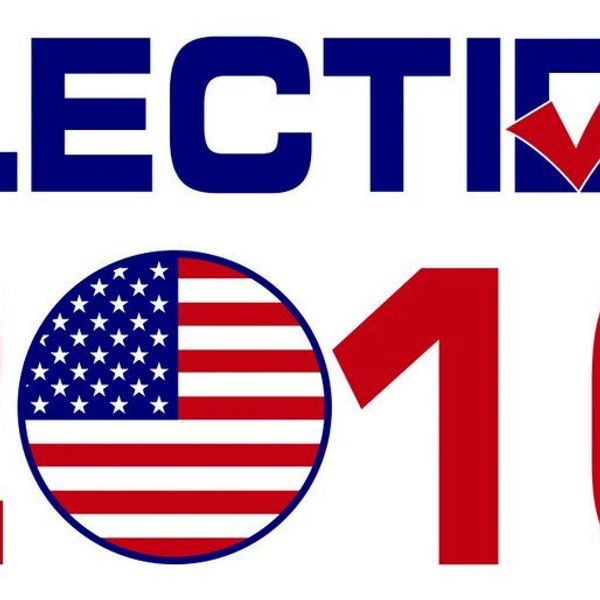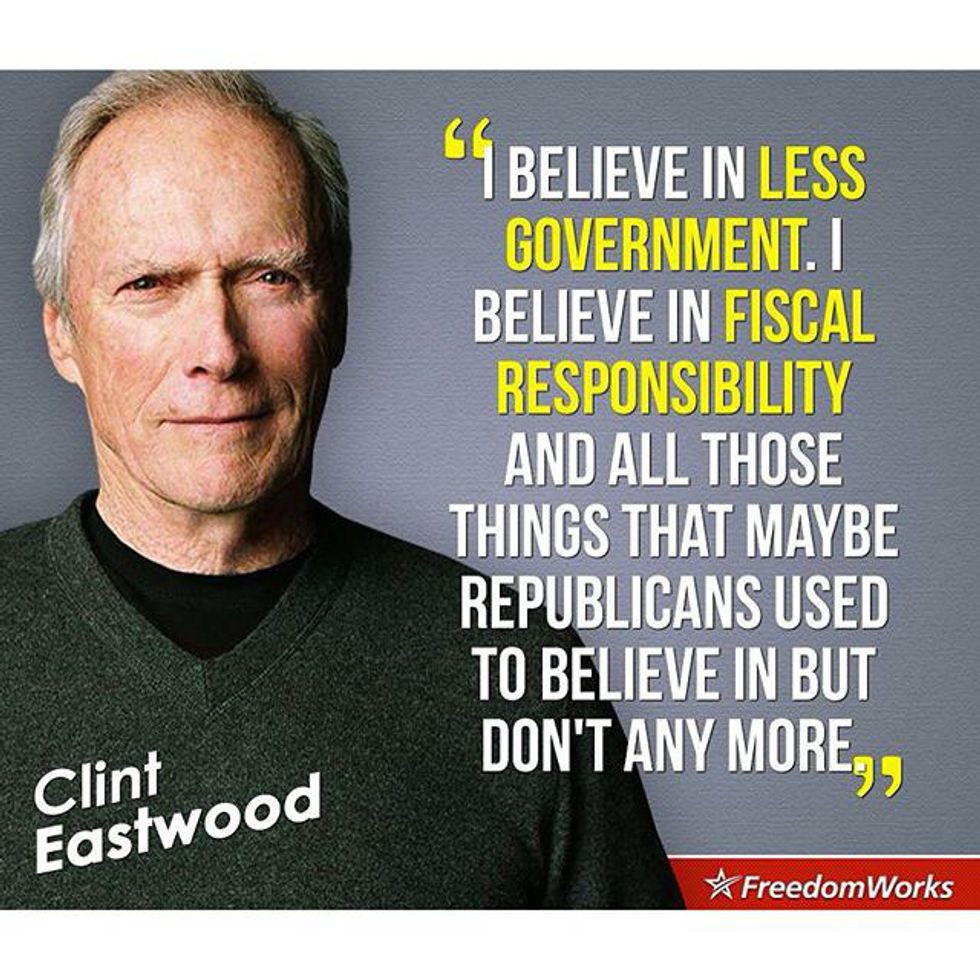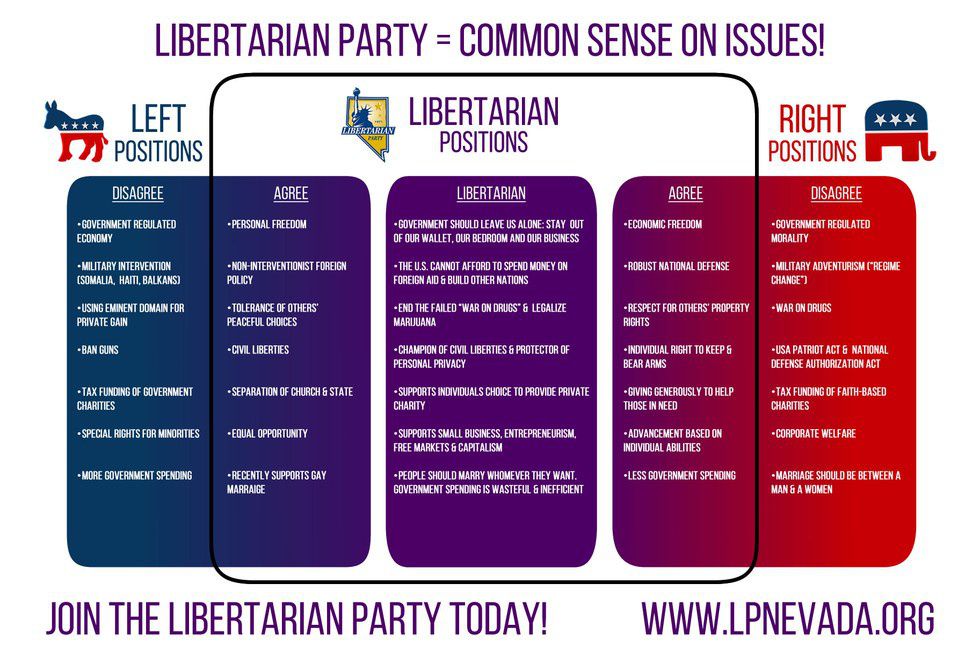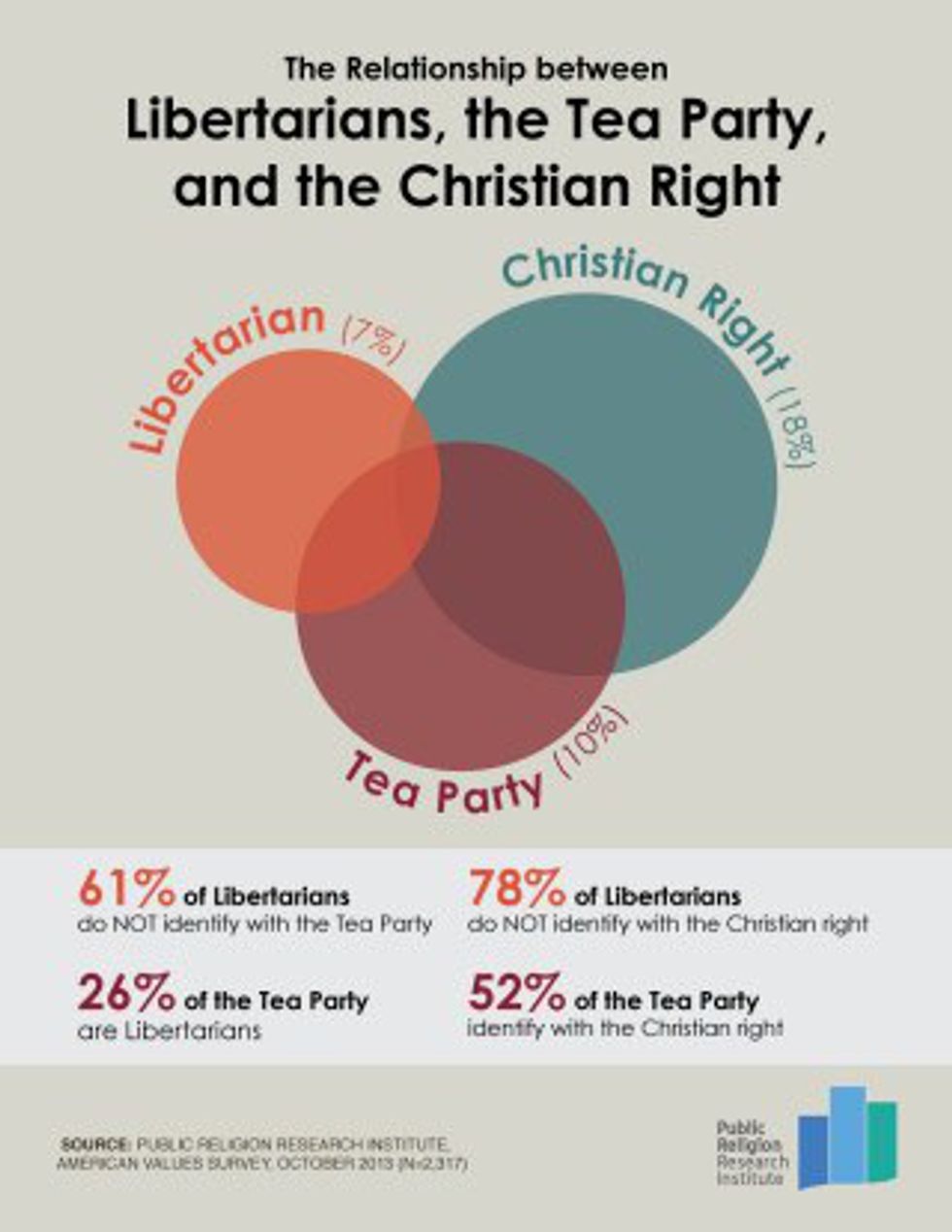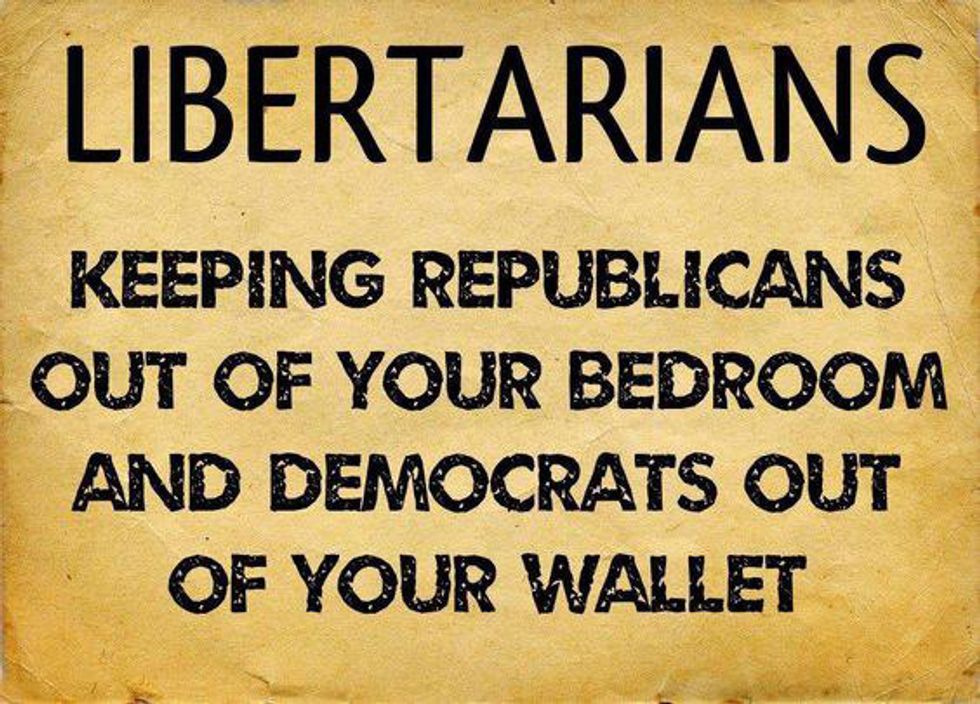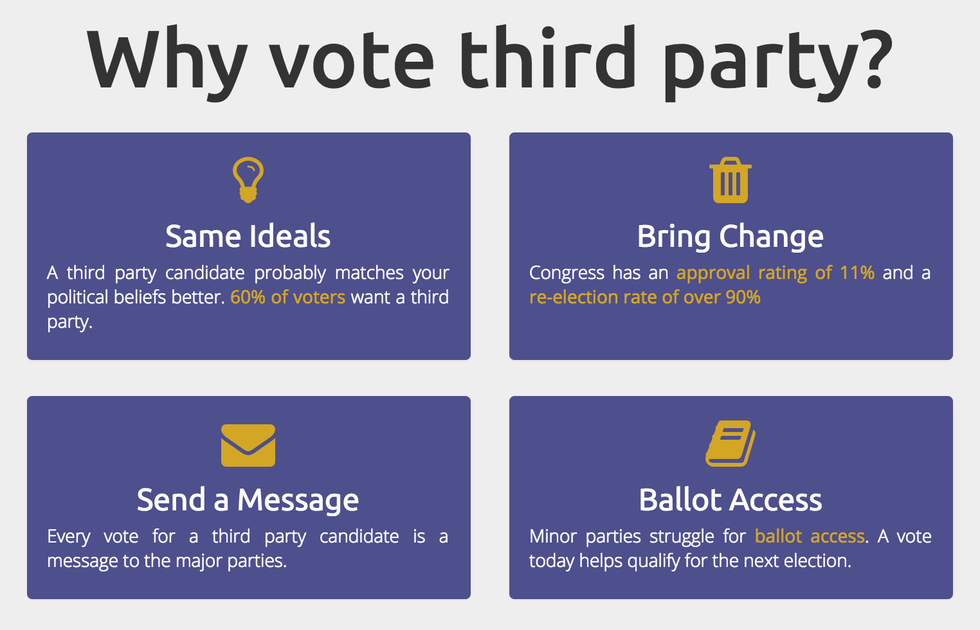This election year has been one for the books. I mean seriously. America’s two major political parties have become so polarized in their beliefs that the two most controversial candidates in all of American history have been selected to run for President. Hillary Clinton’s one of America’s most despised political figures and Donald Trump’s the only person America hates more, leaving many voters to wonder if there’s another option. And by “many voters,” I mean a record-breaking 10-12% of voters who opted for a rising third party (according to a number of polls held by various major news stations), far surpassing that party’s previous high score of 1.1% of voters.
Enter: Gary Johnson, self-proclaimed Libertarian and Presidential candidate, former two-term governor of New Mexico, self-made millionaire, and marijuana edible enthusiast. Many people recognize his name, but not many people really understand what he and his party are all about. Fortunately for you, dear readers, that’s what I (and Clint Eastwood) am here for.
(Image Credit: sonsoflibertytees.com)
The entire platform of the Libertarian Party is ruled by one ideal and one ideal only: freedom is good and big government restricts freedom. So the less government, the more freedom. And this is America: who doesn't love freedom?
(Image Credit: giphy.com, the BET Awards)
Basically, Libertarians believe that as long as you aren’t affecting anybody else, you’re free to do whatever you want. But Libertarians aren’t the only ones who love freedom. Libertarianism has a lot of cross-over with both Democratic (socially liberal) and Republican (fiscally conservative, i.e. less taxes and fewer/smaller government programs) platforms. This cross-over with the two major parties allows the Libertarian party to draw voters from both sides of the political spectrum.
(Image Credit: the Libertarian Party of Nevada)
However, that same cross-over also excludes them from membership in the smaller, more conservative groups like the Tea Party and the Christian Right, both of which tend to be far too socially restrictive to suit most Libertarians' set of ideals (although Libertarians are often mistaken as being an extremely Conservative political party).
(Image Credit: Public Religion Research Institute)
Okay, so we’ve got the basics down. But where do the Libertarians stand on hot-button topics like immigration, abortion, civil rights, and foreign policy?
Immigration: If you restrict immigration or trade, you restrict the freedom of people. And, again, Libertarians are all about freedom. Johnson has discussed a pathway to citizenship for current illegal citizens, and most Libertarians stand behind a simpler immigration process than the one we have now. Most, however, also support government regulation and control over immigration. But wait- that doesn't sound very anti-government-ey. Their reasoning? If bad guys (think: violent criminals) come into the country, they could very likely restrict the freedom of the people who already live here by, well, being bad. Crime isn’t good for anyone. Some Libertarians umbrella this thinking to include impoverished immigrants, suggesting that mass immigration of low-income people to America may strain America’s pre-existing welfare system.
Abortion: Pro-choice, but not government-funded choice. Bye-bye, Planned Parenthood.
Civil Rights: Pro-Choice isn’t just for abortions. Among the many other choices Libertarians believe in are: who you can marry (aka gay pride every day), what you can smoke (sidenote: Gary Johnson is also the retired CEO of a marijuana company), who you can have sex with (legal prostitution and pornography, provided that it is legitimately safe and consensual), and who you can do (or refuse) business with. Meaning, if your private company wishes to deny service to any individual or group based on factors such as gender, sexual orientation, race, ethnicity, religion, age, and wealth, it is free to do so. It is also free to be boycotted and protested by the rest of America until it falls into a smoking heap of misery and failure. That is the choice and the right of that private business. The government must remain unbiased and fair, serving to equally protect of the rights of all American citizens. In a Libertarian world, the government doesn’t dictate the morality of America; the citizens do.
(Image Credit: Libertarianboard.com)
Foreign Policy: Original Libertarianism tends to be isolationist. However, Gary Johnson rejects that policy, citing himself instead as a “non-interventionist,” a title that many other Libertarians have adopted in an increasingly globalized world. Most conflicts, Libertarians believe, don’t need America’s helping hand- unless that conflict is a direct threat to American safety. No word on whether America’s “safety” also includes conflicts that potentially threaten America’s economic prosperity (looking at you, OPEC). Also basically no word from Johnson about how he’d go about the whole ISIS situation. However, most Libertarians (including Johnson) are pretty big on supporting the troops, both retired and active, financially and with healthcare. Libertarians especially know that freedom ain’t free.
The pros and cons of Libertarianism are up to you to decide. Democrats aren’t a big fan of their limitations on government programs, especially welfare. Republicans aren't a big fan of their great distaste for Social Security or social conservatism in general. But while Libertarians remain a minority party, the recent successes of Gary Johnson don’t entirely count them out. Even though Libertarians stand almost no chance of sweeping the electorate this year, for the first time they do have the ability to sway the numbers.
(Image Credit: www.burnmyvote.org)
Libertarian opinions matter, and voters seem to identify with them now more than ever. Maybe America is ready for a new kind of change— one without Democrats or Republicans?


